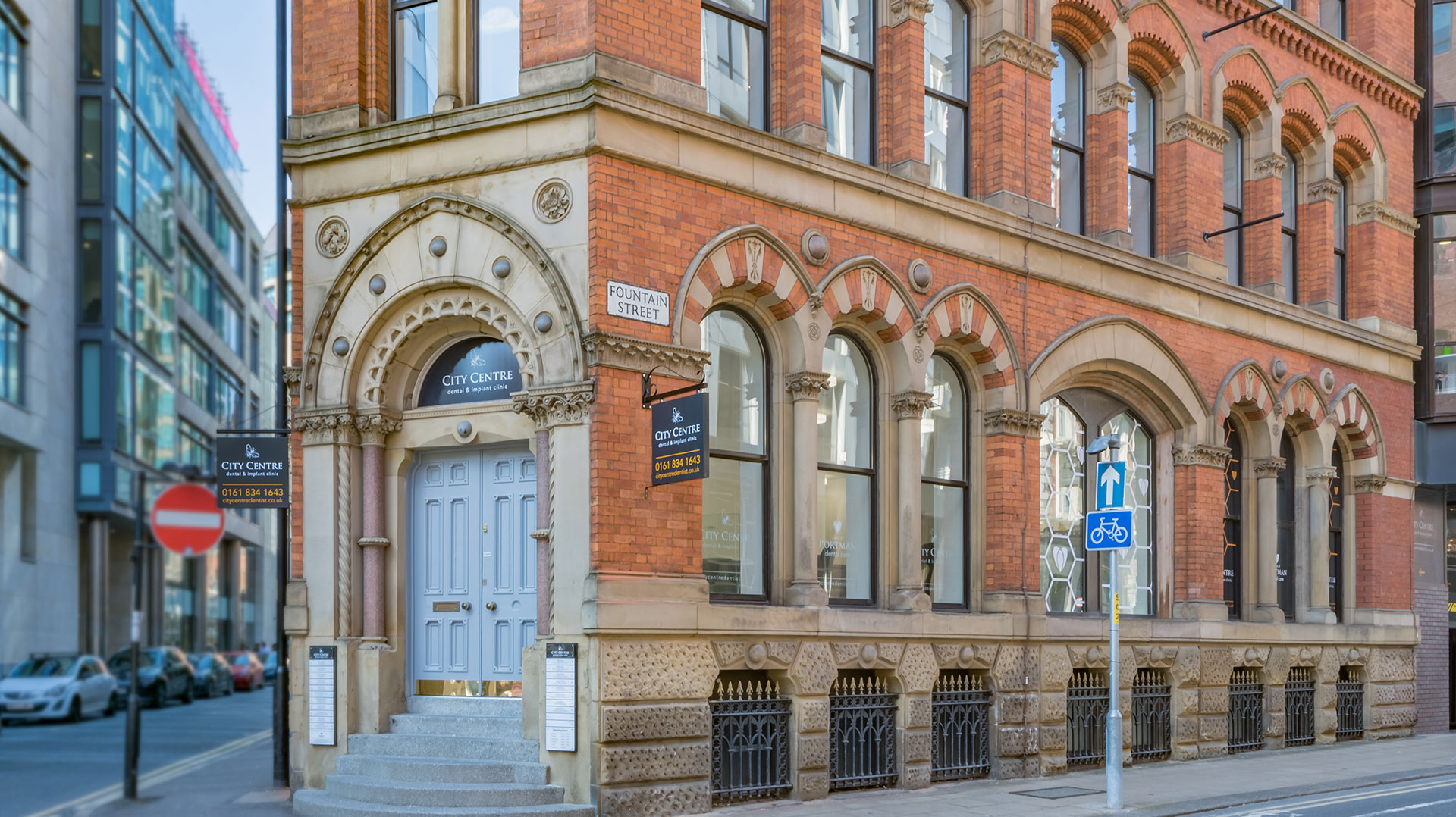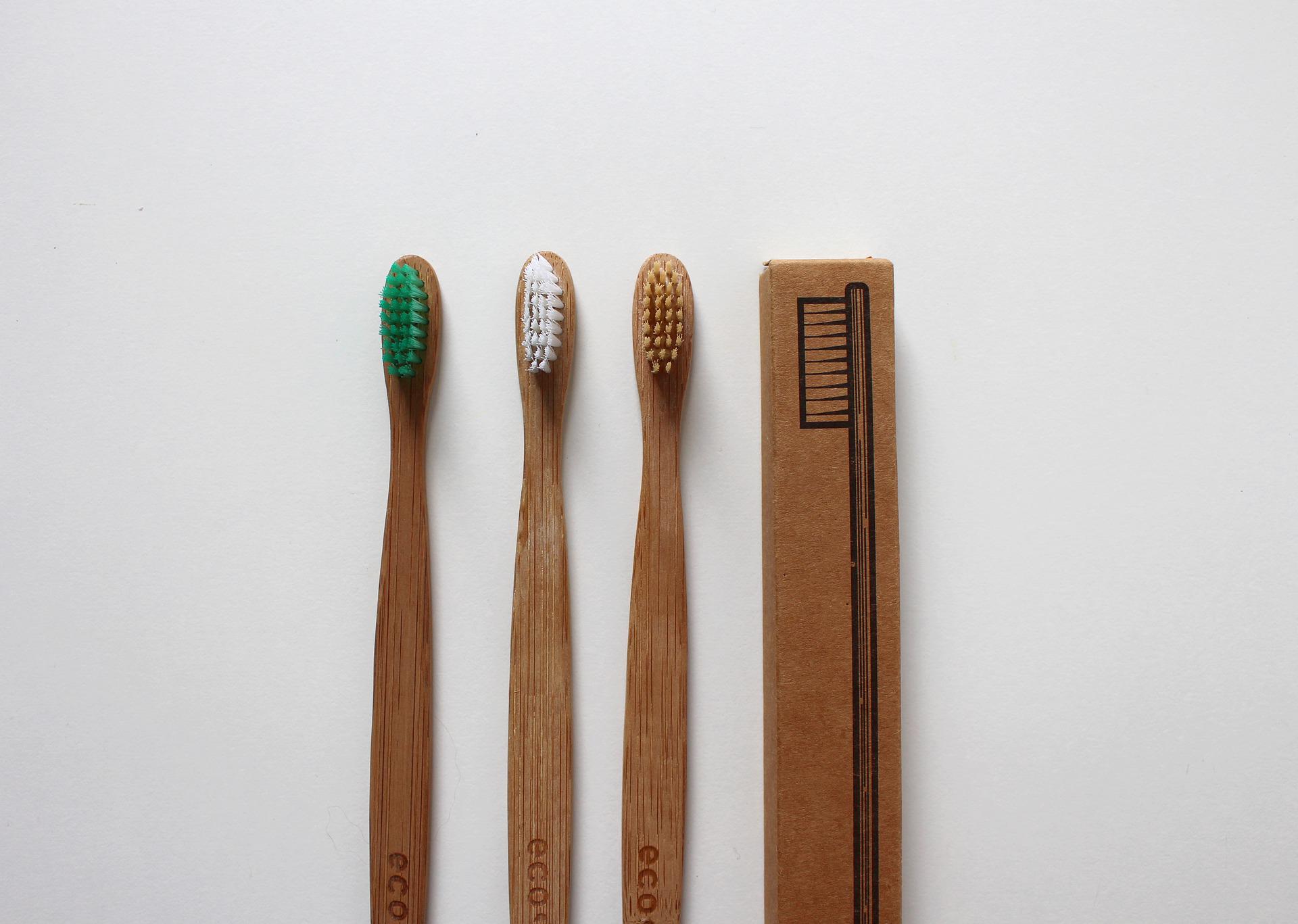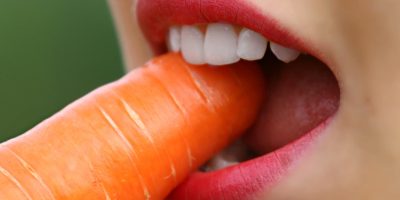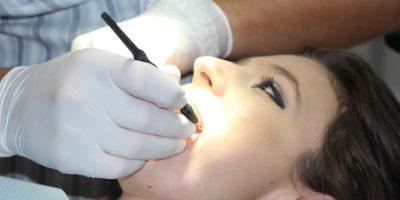-
Categorised as:
- Advice
Maintain healthy gums by brushing your teeth
As we know, brushing your teeth is an essential part of your oral hygiene routine, but are we all doing it correctly? To maintain healthy teeth and gums you must use the correct routine and doing this regularly and thoroughly, will help to ensure your mouth stays healthy. Whilst we probably all do this slightly differently, below are some simple, helpful tips on how to brush your teeth for maximum oral hygiene.
How long should you brush for?
Our advice is to brush for two minutes, twice a day. Once in the morning and once again before you go to bed. Brushing your teeth regularly is important in reducing the build-up of harmful plaque, and doing this twice a day helps to prevent gum disease and tooth decay.
When you don’t brush your teeth properly, bacteria can build up and stick to your teeth. This layer of bacteria is called plaque, and a build-up of plaque can lead to sore gums, gum disease and eventually tooth loss. Plaque also converts sugars into our food into acid which attacks the teeth and causes tooth decay (cavities).
Find the right toothbrush to suit you
Finding the right brush makes a big difference to the effectiveness of your brushing, but also your comfort. Using an electric toothbrush can be good, but only if used correctly. If you’re using an electric brush let the brush do the work for you. Hold it on each tooth individually, angling the bristles towards the gumline. Plaque collects where your tooth meets your gumline, so it’s important that you ensure the bristles of your brush reach this area when brushing.
Electric brushes are more efficient than manual brushes because they have a smaller head to access hard to reach areas, and the oscillating action removes plaque efficiently, with more brush strokes per second that we can produce manually.
-
Brush every surface with a fluoride toothpaste
Apply a pea-sized amount of fluoride toothpaste to your brush and aim to brush every surface of every tooth. Fluoride strengthens enamel to give extra protection against tooth decay and using a toothpaste which contains fluoride is recommended by dental care professionals. To ensure the best clean, move your brush in a small circular motion. An electric toothbrush will automatically do this motion for you.
-
Aid brushing by avoiding sugary food and drink
Brushing your teeth is only part of your oral hygiene routine. Try reducing the amount of sugary food and drink you consume and if you are going to have them, aim to only have them at mealtimes, not between meals.
Fizzy drinks and fruit juices contain acids, which can dissolve the outer surface of your teeth (enamel). This is called erosion; it thins your teeth, which can make them more sensitive, translucent or yellower and more likely to chip. So, avoiding these drinks can help prevent erosion and sensitivity. If you do consume erosive drinks or foodstuffs (such as fruit), wait for at least one hour after eating or drinking anything acidic before brushing your teeth. This gives your teeth time to build up their mineral content again.
Other brushing advice
You may also choose to use dental floss and interdental brushes to brush your teeth. This is advised to add a more thorough clean after brushing with your toothbrush to get in between the teeth. If you don’t clean in between the teeth you are missing more than a third of the tooth surfaces. Interdental brushes get into all the nooks and crannies and also stimulate the gums to improve gum health.
Floss helps to remove plaque in between the teeth to improve gum health, it also helps to prevent cavities by removing plaque between the teeth where they touch. This is a common area where tooth decay and cavities start, so removing plaque here also helps to prevent decay.
Remember to ‘Spit don’t rinse’ after brushing – so that the fluoride stays on your teeth for longer. If you wish to use a mouthwash, then a fluoride mouthwash, used at a different time to brushing will increase protection against tooth decay.
Whilst this list is not fully exhaustive, use these tips to keep your mouth healthy, and avoid tooth decay and gum disease. Remember to brush regularly, twice a day. Replace your toothbrush regularly to ensure the bristles reach every part of your tooth. Avoid sugary food and drink between meals and add flossing or fluoride mouthwash to your routine to ensure a healthy smile.
Meet our team
-
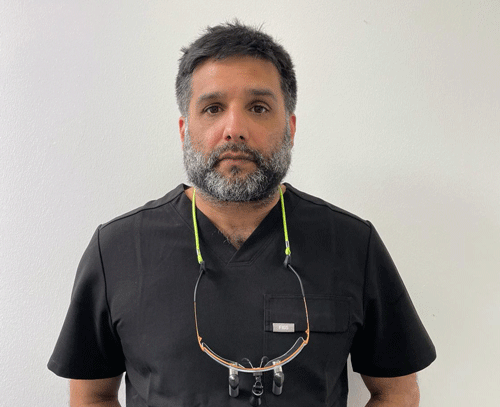
Anil Mangat
Special interest in Periodontology
-
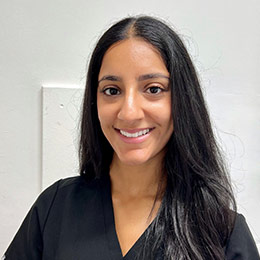
Navneet Jhaj
Dentist
-

Sarah Kininga
Dental Nurse
-

Gemma Cowen
Dental Therapist

Anil qualified in 2001 from Cardiff University Dental School and worked in a range of dental practices in Cornwall, South Wales and Sheffield as a general dental practitioner. He was always interested in treatment of gum disease. In 2017, he undertook a 3-year MSc in clinical Periodontology at the University of Central Lancashire, qualifying in 2020.
Anil has been accepting Periodontal referrals since 2018 and undertaken and range of treatments including:
• surgical and non-surgical Root surface debridement, • surgical periodontal regeneration,
• adjunctive antibiotics for treatment of severe, non-responsive gum disease.
• Management of occlusal trauma (uneven biting forces can loosen teeth, particularly in those who clench or grind their teeth).
• Splinting of loose teeth. • crown lengthening including treatment of gummy smile (for suitable cases),
• Coordinating treatment planning with restorative, orthodontic or implant treatment where stabilisation of gum condition and accurate prognosis is needed.
Anil has a keen interest in teaching. He spent time as dental foundation trainer, mentoring newly qualified dentists through their first year in Practice and is currently an honorary clinical lecturer at Sheffield University Dental School, supporting 4th and 5th year undergraduates. He has acted as an examiner for the GDC’s Overseas registrants’ examinations.
Outside of work, Anil enjoys Hockey (though more coaching than playing these days), cycling, films and music and a trip to the gym.

Navneet qualified from King’s College London Dental Institute in 2019. Her passion for Dentistry is ever-growing as she has completed several postgraduate courses. She has completed a yearlong Restorative Dentistry programme to progress her skills further. Her keen interest for restorative and aesthetics enhanced as she attended the world-renowned course in Italy, Styleitaliano Daily Menu. Additionally, she provides Invisalign to be able to offer a complete smile makeover.
Navneet has a friendly and calm nature and she aims to empower her patients to understand and better their oral health. With her welcoming presence she thoroughly enjoys treating paediatric and nervous patients.
In the near future she aims to provide patients with evidence – based holistic approaches to aid their overall health, as outside of work, she is hugely interested in nutrition, health and wellness.


.
Should you be unsure on any of the above, please do not hesitate to contact us
How to find us
Our practice is located in the heart of Manchester City Centre. You can find us at 31 Booth St, Manchester, M2 4AF, where we’ll be providing fantastic state-of-the-art services in a purpose-built space in a beautiful listed building. We look forward to seeing you soon.
Parking information & accessibility
Our practice is fully accessible, meaning that regardless of your mobility, we can welcome you into practice, please contact us for further information about our access. If you are travelling by car, we are within close proximity to the chargeable NCP car park at Piccadilly Plaza. Alternatively, there are number of tram and bus stops, which are just a short walk away.
